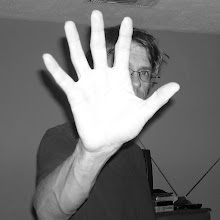Yes, Watchmen seems to have come and gone but I have few items to share and then I'll put it behind me (at least until the DVD comes out). This is one of the best reviews of the film I've seen. It is quite negative but you can't argue with points the reviewer makes and I especially like how he uses the original comic to support his argument. Now, I liked the Watchmen movie and I still do even after reading the review. So why did the film still work for me despite such valid criticisms? Esteemed author Michael Swanwick nicely encapsulates an answer. (One final note about Watchmen: I started watching the Complete Motion Comic on Blu-Ray DVD and am thoroughly enjoying it. Seeing Dave Gibbons panels in such clear close-up shows me things I've missed before. The animation is done with great care and understanding of the material. I highly recommend it.)
*****
I've read three books in the past month and all have been outstanding. Tender Morsels by Margo Lanagan is one of the best fantasies published last year. It is marketed as "young adult" but don't let that arbitrary categorization fool you. This is a book for sophisticated readers of any age.
I read an advanced copy of The City and The City by China Mieville and was quite impressed. This is a book that will generate a lot of talk in the coming months. The book reads like a fantasy but most assuredly is not. Mieville posits two fictional European cities that occupy the exact same geography--the exact same spot on the globe. The only thing that keeps the cities separate is the mental effort of citizens to recognize only elements of their respective cities--their fashions, buildings, foods, etc.--even if they are standing next to a citizen from the other city (whom they must "unsee"). Mieville uses so many recognizable fantasy tropes (words like alterity and breach and cross-hatching and unsee) that you aren't sure what he is doing until well into the story (that is if you haven't been warned by someone who's read it already!). The book is very good but I suspect some will wonder why Mieville created such an outlandish scenario and yet refused to make it fantasy. I think the book is a success however and that Mieville has done something unique and relevant. I will have to write more about this book soon.
I read Rogue Male by Geoffrey Household, a classic chase story written in 1939. It still holds up extremely well today (I guess that's why they call it a classic).
*****
Finally, I was quite impressed with the Where The Wild Things Are trailer. I look forward to seeing this movie in October. Dave Eggers is supposedly writing a novel adaptation of the film called The Wild Things. I am both worried and excited.



